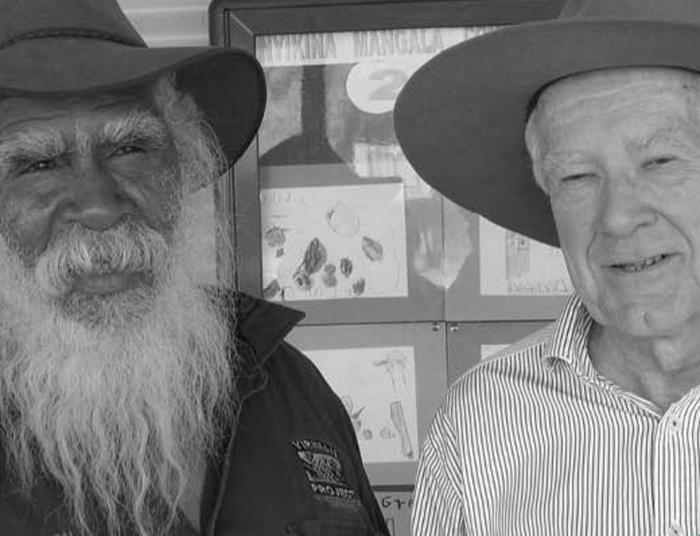In 1986, John Watson’s finger was bitten off by a crocodile. A Nyikina Mangala man from the Jarlmadangah Burru Aboriginal Community of the Kimberley, John turned to the bark of the Mudjala mangrove tree seeking pain relief. He chewed on a strip of bark and applied it as a dressing to his wound.

Credit: Australian Academy of Technological Sciences & Engineering
In 1986, John Watson’s finger was bitten off by a crocodile. A Nyikina Mangala man from the Jarlmadangah Burru Aboriginal Community of the Kimberley, John turned to the bark of the Mudjala mangrove tree seeking pain relief. He chewed on a strip of bark and applied it as a dressing to his wound.
When Professor Ron Quinn AM from Griffith University heard of John’s ordeal, and his use of the Mudjala bark, he was intrigued.
An enduring partnership eventuated between the Nyikina Mangala people and Griffith University under the leadership of John and Professor Quinn, seeking to identify what active compounds could be present in the bark.
Combining thousands of years of Traditional Knowledge with western science has revealed a novel, natural remedy for the treatment of severe pain.
As a result, John and Professor Quinn have been named as the inaugural recipients of the Australian Academy of Technological Sciences & Engineering’s Traditional Knowledge Innovation Award.
The bark contains two classes of compound: one is effective for inflammatory pain and the other mitigates sciatic nerve injury.
The resulting product – a possible topical gel – will be based on the complex mixtures present within the bark paste. John and Ron hope that this gel could be supplied to athletes at the 2032 Brisbane Olympics, and heralds widespread application for Traditional Knowledge, while maintaining Aboriginal ownership.
Weaving Traditional Knowledge with western science for a new approach to pain relief, tapping into green energy using recycling byproducts, and a revolutionary new approach to sustainability for the beef and lamb industry, are all being celebrated at the Australian Academy of Technological Sciences and Engineering’s annual national Awards tonight.
ATSE’s winning engineers and technologists were recognised for their groundbreaking work on Australia’s toughest issues, spanning climate change, mining, plastic waste, battery tech and food security among others, during a ceremony at the National Arboretum in Canberra on Thursday October 26.
ATSE President, Dr Katherine Woodthorpe AO FTSE, said the winners’ innovation, drive, and impact were exemplars for the game-changing application of Australian research.




